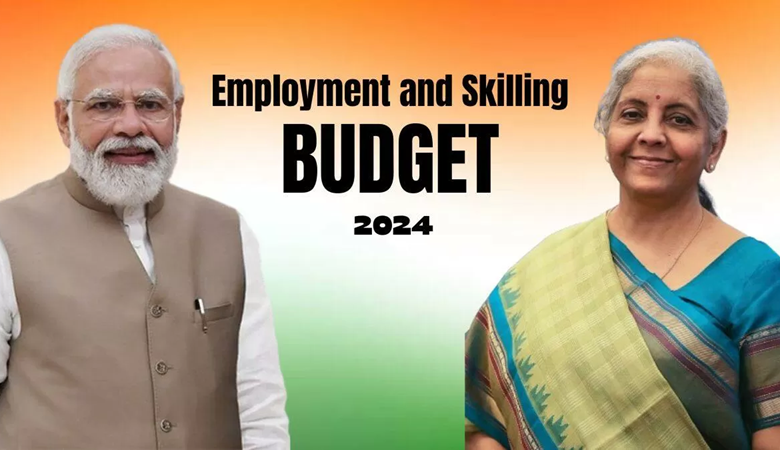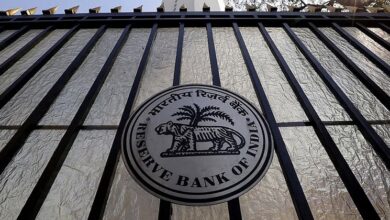Boosting Employment and Skilling in India: New Government Initiatives for 2024-2025

News Mania Desk/Agnibeena Ghosh/24th July 2024
Employment and skill development are essential for economic growth and social stability. In her budget speech for 2024-2025, Finance Minister Nirmala Sitharaman unveiled a series of initiatives aimed at increasing employment and enhancing the skills of the Indian workforce. These measures are designed to create job opportunities, improve employability, and support economic development.
The government has introduced three employment-linked incentive schemes as part of the Prime Minister’s package. These schemes focus on recognizing first-time employees, supporting employers, and incentivizing job creation in the manufacturing sector.
Scheme A provides a one-month wage subsidy for all individuals newly entering the workforce in formal sectors. This direct benefit transfer of one month’s salary, up to ₹15,000, will be distributed in three installments for first-time employees earning a salary of up to ₹1 lakh per month. This scheme aims to benefit 210 lakh youth by easing their transition into the workforce and supporting both employees and employers during the initial employment period.
Scheme B focuses on incentivizing additional employment in the manufacturing sector. Employers who hire substantial numbers of first-time employees will receive incentives based on their EPFO contributions. The incentive is shared equally between the employee and employer over four years. This scheme is expected to benefit 30 lakh youth entering employment and their employers, promoting job creation and industrial growth.
Scheme C offers support to employers across all sectors who create additional employment. The government will reimburse employers up to ₹3,000 per month for two years towards their EPFO contribution for each additional employee. This scheme aims to incentivize the creation of 50 lakh new jobs, providing a substantial boost to employment across various industries.
To enhance women’s participation in the workforce, the government plans to set up working women hostels in collaboration with industry and establish creches. Additionally, women-specific skilling programs and market access initiatives for women SHG enterprises will be promoted. These measures aim to create a more inclusive workforce and support women’s economic empowerment.
A new centrally sponsored skilling program will be introduced in collaboration with state governments and industry. Over the next five years, 20 lakh youth will be skilled through this program. The initiative includes upgrading 1,000 Industrial Training Institutes (ITIs) in a hub-and-spoke arrangement, focusing on outcome-oriented training. The course content will be aligned with industry needs, and new courses will be introduced to address emerging skill requirements.
The Model Skill Loan Scheme will be revised to facilitate loans of up to ₹7.5 lakh with a guarantee from a government-promoted fund. This measure is expected to help 25,000 students annually, providing financial support for skill development and vocational training.
To support students pursuing higher education in domestic institutions, the government will offer financial support for loans of up to ₹10 lakh. E-vouchers will be provided directly to 1 lakh students each year, offering an annual interest subvention of 3% on the loan amount. This initiative aims to make higher education more accessible and affordable for students who have not benefited from other government schemes.
The government’s focus on employment and skilling is expected to have long-term positive effects on the Indian economy. By providing financial support and incentives for job creation, these initiatives will help reduce unemployment rates and enhance the employability of the workforce. The skilling programs, particularly those in collaboration with industry, will ensure that the skills imparted are relevant and aligned with market demands.
The emphasis on women’s workforce participation and targeted support for women entrepreneurs will foster a more inclusive and diverse labor market. Furthermore, the provision of skilling and education loans will enable more individuals to pursue vocational training and higher education, ultimately contributing to a more skilled and educated workforce.
The government’s comprehensive approach to boosting employment and skilling through various schemes and initiatives is poised to create significant job opportunities and enhance the capabilities of the Indian workforce. By focusing on first-time employees, supporting employers, and promoting skilling programs, these measures will contribute to sustainable economic growth and social stability. As these initiatives are implemented, they will play a crucial role in shaping a more prosperous and inclusive future for India.






